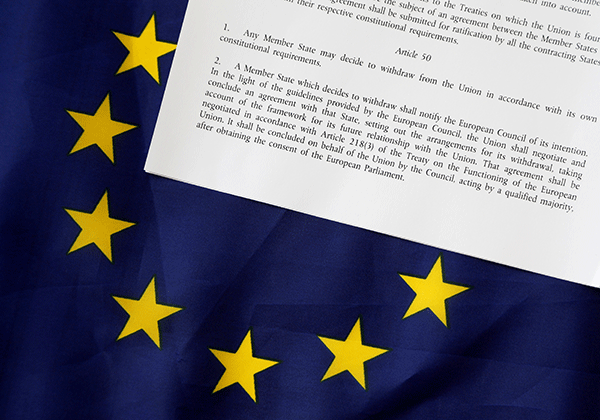Court to rule on whether London needs parliament to trigger EU exit
 |
|
Article 50 of the EU's Lisbon Treaty that deals with the mechanism for departure is pictured with an EU flag following Britain's referendum results to leave the European Union, in this photo illustration taken in Brussels, Belgium, June 24, 2016. [Photo/Agencies] |
British Prime Minister Theresa May will learn on Thursday whether she must seek parliamentary approval before triggering the formal process of leaving the European Union, a step some investors hope will lessen the chances of an economically disruptive "hard Brexit".
London's High Court will hand down its judgment on whether May and her ministers have the authority to invoke Article 50 of the EU Lisbon Treaty, the mechanism by which a country can leave the bloc, without the explicit backing of parliament.
May says she is determined to honor voters' decision in a referendum last June to leave the EU, and has the authority to do so.
But if the legal challenge succeeds, members of parliament (MPs) might have to vote on whether and when Article 50 should be triggered, which could lead to delays or even, in theory, block Brexit altogether.
May has said she will invoke Article 50 by the end of March, kicking off two years of divorce negotiations. In the wake of that announcement, sterling, which had already weakened dramatically since June, shed about 5 percent against the dollar to plumb its lowest levels in over three decades.
If the legal challenge is successful, May might not be able to meet her own March deadline. Some investors also believe the more lawmakers are involved, the less chance there will be of a "hard Brexit", where Britain prioritizes curbing immigration over remaining in the EU single market.
During a three-day hearing last month, the attorney general, the government's top lawyer, accused the challengers of trying to invalidate the result of the referendum, which backed Brexit by 52 percent to 48.
However, the challengers argued that only parliament, as Britain's sovereign body, could make a decision that would strip citizens of statutory rights.
Lord Chief Justice John Thomas, England's top judge, and two other senior judges will give their judgment at 1000 GMT. The losing side is expected to appeal to the Supreme Court, Britain's highest judicial body, which would probably hear the case in December.
Around three-quarters of the 650 members of the lower house had backed remaining in the EU before the referendum. However, a Reuters survey last month suggested many of those were likely to endorse Brexit now.
If the High Court rules against the government, May might therefore choose to bring in legislation promptly rather than appeal and risk a delay to her timetable.
























